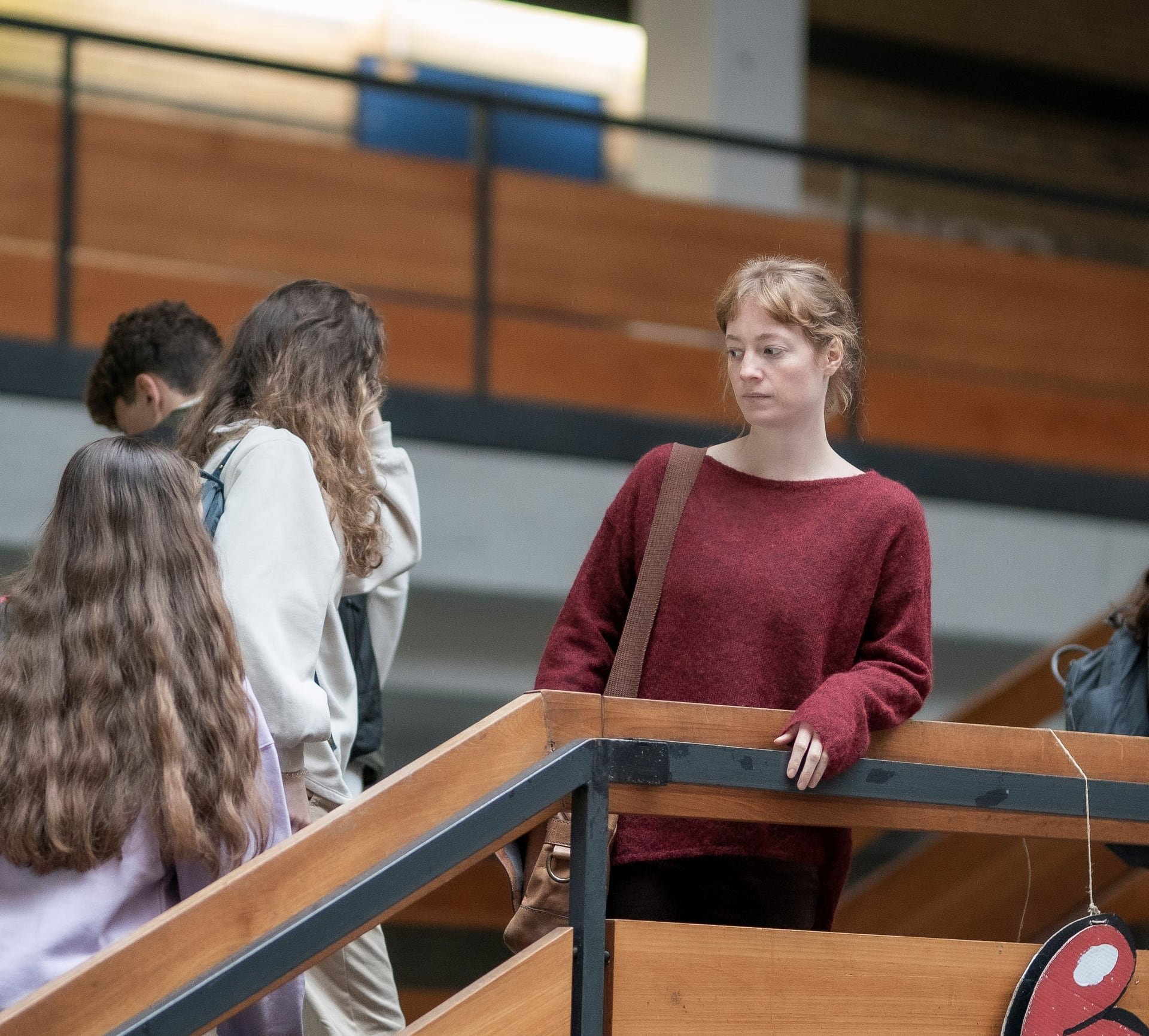Generally, as Eighth Grade showed us, middle school is a viper’s den. The goal is simply to come out alive and relatively emotionally unscathed from the cruelty you’ll experience there…or so I tell my therapist. Usually the teachers are the calming force in the hormone monster stew. Except in this particular school where in The Teacher’s Lounge, maybe we’ve entered the viper’s true lair.
It’s already hard sledding for Carla (Leonie Benesch), a new teacher at a German middle school. While trying to connect with her students like gifted mathematician Oskar (Leonard Stettnisch) and his mom faculty HR person Friederike (Eva Lobau), she’s also navigating the big issue for principal Dr. Bohm (Anne-Kathrin Gummich) and the rest of the faculty: who’s been stealing money out of people’s pockets. Frustrated at the administration’s search for the culprit, Carla takes matters into her own hands…and unleashes the domino effect of all domino effects.
You can feel the tension from minute one. The Teacher’s Lounge, normally a safe respite away from students, is now also essentially a crime scene, as Carla finds out money is stolen there. But unlike Carla’s math class, where she’s searching for the one right answer, Oskar and the other kids propose alternative solutions that are close enough to fill in the gaps. But is “close to 1” equal to 1? These little gray areas keep the investigation from being an open and closed case, and teach a classic growing up lesson about “reasonable doubt.” Based on the movie, I’d say we get 96% of the way to the correct answer of what happened, but that 4% is enough for the accused to launch a giant assault on the school itself, poking holes in the investigation. Without the full context, that 4% feels like 20-30% doubt to others, and with each new person removed from the situation that small doubt becomes a much bigger one, completely changing the narrative and facts Carla knows best but the others are convinced she missed, causing her to doubt herself. That paranoia keeps the tone hyper tense, as each new scene makes it feel like Carla, and the audience, is coming closer and closer to their wit’s end, not the culprit.
Since we’re in the classroom, we’re not just learning about “reasonable doubt.” No. Writer director Ilker Catak also reminds all the crusaders for justice that “no good deed goes unpunished.” Catak makes it clear early on that Carla in general has her heart in the right place: she’s student focused and not quick to jump to conclusions without proof. But, she also is not exactly a rule follower either, breaking a couple codes of conduct to possibly catch the thief. From there, those little investigative defects mixed with a rigid but flawed process driven investigation by the school cause all sorts of consequences, teaching Oskar and the other kids how “almost 1” does not equal 1. Small problems amplify, and become bigger problems, until soon, the biggest problem in the school isn’t a thief, it’s untrustworthy teachers and administrators, a MUCH bigger problem for the school to face. Carla’s previously good-natured actions become murkier, as do the various parties involved in the investigation, making what is right and wrong unclear anymore. Everything is just bad, because no one in power in The Teacher’s Lounge didn’t perfectly capture a thief in the act. As a result, the justice seekers become the “bad guys” and the accused are the “victims” of a botched character assassination.
So remember, be VERY sure of what you’re doing in your quest for justice. And just as importantly, know that there are going to be consequences you will be ready for, and plenty of ones you won’t just because you’re speaking truth to someone with power. Don’t believe me? How’s Edward Snowden doing when he did the right thing? Or Gary Webb? What a miserable lesson to learn in middle school!

